To stop the growth of coronavirus infections, the German authorities are proposing to introduce a curfew, which is opposed by virologists. Is the risk of outdoor infection really that high?
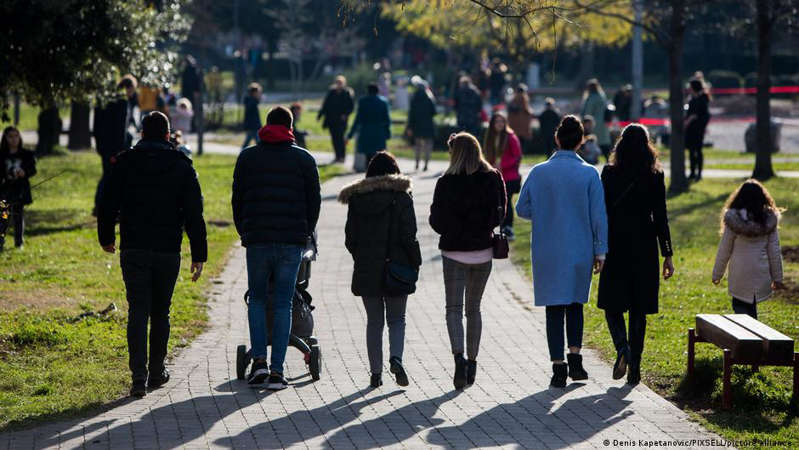
Walking in the fresh air is good for your health
Leading aerosol researchers have addressed the German authorities with an open letter urging not to resort to such measures to combat the pandemic as a ban on leaving the house. Earlier, the German government approved amendments to the Law on Epidemiological Protection, providing, in particular, the introduction of a ban on leaving home from 21.00 to 05.00 if the rate of increase in the incidence in a certain settlement or region exceeds 100 cases per 100 thousand population in 7 days. The document should now receive the support of the Bundestag and the Bundesrat.
In a letter dated April 11, five leading scientists, members of the International Society for Aerosol Research (GAeF), emphasize that coronavirus can only be contracted indoors. It is almost impossible to do this outdoors, and outdoor walks never lead to massive infection with the SARS-CoV-2 virus. In addition, they critically note that wearing a mask on the street, in a pedestrian zone, but at the same time drinking coffee with friends or family in their own apartment without a mask is not the kind of measure that can help in the fight against coronavirus.
At DW's request, the Robert Koch Institute (RKI) did not want to comment on the scientists' letter. But on the organization's website, in the section on information about the coronavirus, it says that outdoor infection is rare. If the required distance is maintained, the possibility of infection is minimal.
“If we introduce a ban on leaving the house, it will be a signal for residents – Attention! It's dangerous on the street! But this is not at all the case,” says physicist Gerhard Scheuch, who previously headed the International Society for Aerosol Research (GAeF). What arguments do scientists give, and how great is the risk of contracting coronavirus, for example, while walking in the fresh air?
Where are the risks of infection higher: outdoors or indoors?
The likelihood of contracting coronavirus outdoors is significantly lower than indoors – no matter whether we are talking about the original version of SARS-CoV-2 or about its mutated variants. After all, a decisive role in the transmission of infection is played by the so-called aerosols – small particles of fluid released by the patient during breathing. In the fresh air, they quickly cease to be dangerous, experts say.
“This is due to the active air circulation, thanks to which the aerosols are no longer concentrated,” explains Nico Mutters, head of the Institute for Hygiene and Public Health at the University Hospital Bonn, in an interview with DW. Birgit Wehner, who studies aerosols at the Leibniz Troposphere Research Institute, agrees. According to the scientist, droplets of liquid caught in the air along with breathing outside closed rooms dry out faster and lose their saturation.
Can you get coronavirus on the street?
Nevertheless, as follows from the policy document of the Aerosol Research Society, which Venus also signed, infection with coronavirus on the street cannot be completely ruled out. It is possible when it comes to a large crowd of people in a limited area.
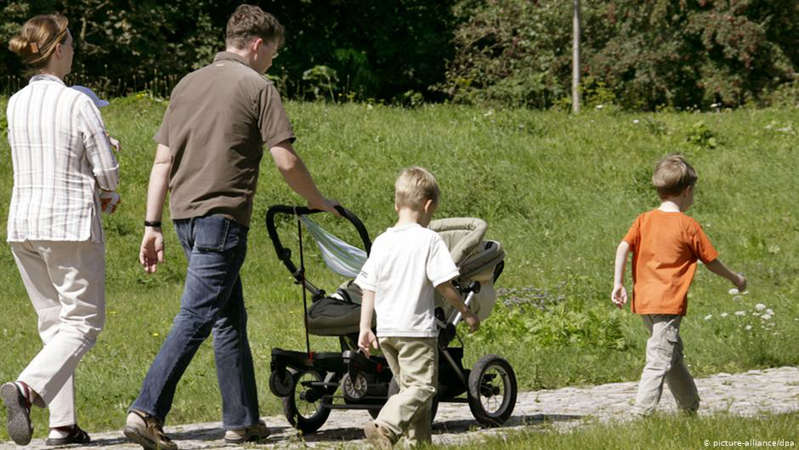
Warm weather attracts families to nature
So the social distance of one and a half meters must be observed in the fresh air. “If you do not do this, but communicate with each other face to face and at the same time speak loudly, sing or shout, then you can infect your interlocutor not by air, but by droplets, as if you spat on him,” says virologist Alexander Kekulé in an interview with DW.
Kekule has repeatedly criticized the anti-crisis policy of the FRG government in the German media. According to the expert, people need to learn to live with the coronavirus, abandoning too strict restrictions.
Do I need to keep a distance on the street?
From the point of view of a virologist, social distance is also worth keeping in order to protect against mutations of the coronavirus. “The mutated virus does not fly over longer distances, this is important to remember,” says Kekule. The fact that the new variants of SARS-CoV-2 are more infectious than its previously known counterpart does not matter much if precautions are taken, he adds.
The conclusion is this: you should refrain from hugs and kisses. But during ordinary meetings, when, for example, you just walk by another person, there is practically no danger of infection, the expert explains. According to one Chinese study, only one case of infection out of 7324 studied occurred in the open air.
What role does wind play in the spread of the virus?
Social networks are increasingly posting photos of people sitting in groups on the lawn.
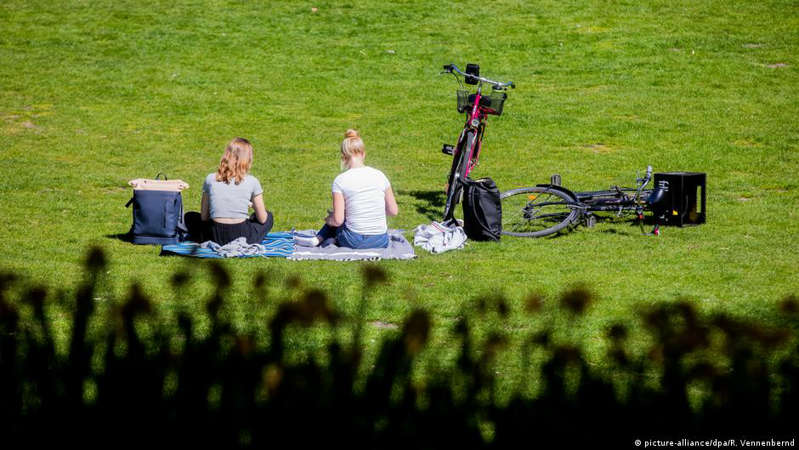
The risk of infecting another group of vacationers, while maintaining a distance, is minimal.
Could it be that, due to the wind, aerosols exhaled in one company will convey to the picnic participants in the neighborhood? According to aerosol expert Birgit Vener, there is no need to worry. The likelihood that the wind will carry aerosols to another group of vacationers in a concentration sufficient for infection is practically zero, she believes.
Gerhard Scheuch also agrees with Venus. “The more windy the weather, the more a cloud of aerosols that a person produces is spread around the area,” he explains. At the same time, since the temperature of the human body is usually higher than the air temperature, the aerosol cloud simply rises up, evaporating, the scientist points out. The fact that the wind does not contribute to infection with coronavirus proves the study of Iranian scientists.
Is the risk of infection higher when it is cold?
Scientists have not yet given a final answer to this question. American researchers studied the characteristics of infections in areas of China with a warm, cold, dry and humid climate and found no relationship between climatic conditions and the frequency of transmission.
At the same time, Austrian scientists came to the conclusion that ultraviolet rays destroy the virus. At the same time, the authors of the study emphasize that the presence of ultraviolet radiation in the air, most likely, does not affect the transmission of the virus from person to person: after all, only a few minutes are enough for infection.
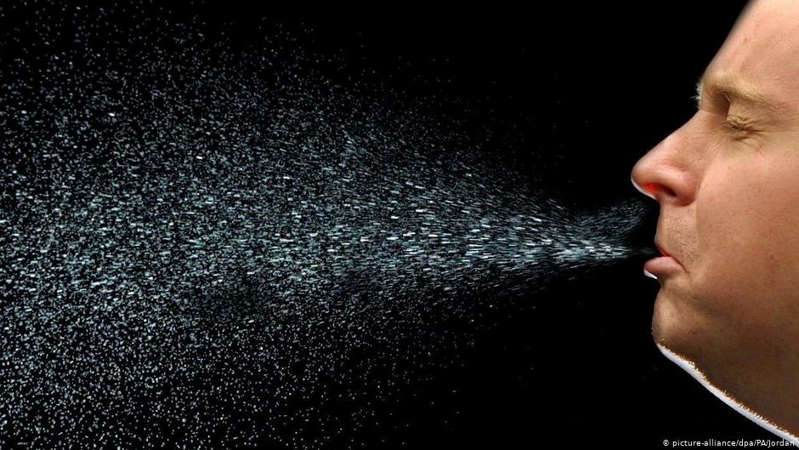
Scientists continue to study the effect of aerosols on the spread of coronavirus
As for the experts interviewed by DW, their opinions were divided on this issue. According to Niko Mutters, head of the Institute of Hygiene and Public Health at the University Hospital Bonn, it is impossible to say that in the warm season the probability of contracting the coronavirus on the street is lower than in the cold months. He draws attention to the fact that the ultraviolet rays reflected from the snow are even stronger than those that are scattered in the air on a typical summer day. “So it’s impossible to say unequivocally that high or low temperatures are critical for coronavirus infection,” the expert sums up, adding that infections occur around the world – both in warm and cold regions.
Virologist Alexander Kekule disagrees with this. He emphasizes that not all infections in warm regions have occurred in the open air. “But it is in hot countries that people especially like to be in rooms where fans and air conditioners work,” he points out.
Can athletes be carriers of the coronavirus?
When meeting with athletes who breathe deeply and actively, it is enough just to maintain a social distance – and you will not be in danger of being infected with coronavirus in the fresh air, experts reassure.
The same applies to the situation when the athlete just ran past you. “During sports, you need to be in the immediate vicinity of another person for a few minutes to infect him,” says Gerhard Scheuch. That is why even contact sports, for example, football or basketball, when they are played in an open area, from the point of view of an aerosol researcher, are not dangerous.
The situation is different with shared dressing rooms and toilets. Here you need to be very careful and ventilate them more often, experts recommend.
Smokers and the coronavirus
To date, there are no studies that have examined the effect of secondhand smoke on the spread of infections. Last year, a ban on smoking in public places in the fresh air was issued by the Spanish government. This limitation, however, extended only to those sites where it was impossible to maintain a social distance of two meters.
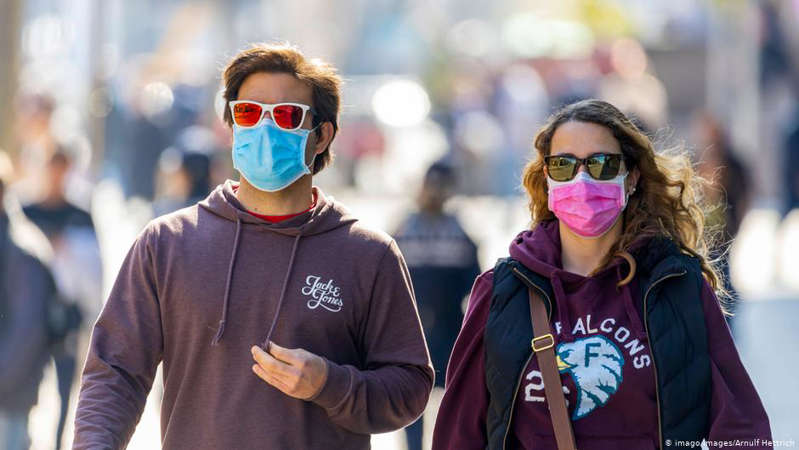
While observing social distance, wearing masks on the street is optional.
According to aerosol specialist Shoikh, subject to social distance, smokers, in terms of the spread of coronavirus, are no more dangerous than nonsmokers. “When you smoke, you don't get more virus out than under other conditions,” he says. Medical expert Mutters agrees, stressing that smokers themselves are not potentially more infectious carriers of the virus.
Should you wear a mask outdoors?
On the street, wearing a mask is recommended when in a crowd, and when it is impossible to maintain social distance in relation to other people. “When you’re waiting for a bus at a bus stop, or when you’re standing in line and feel uncomfortable, the mask certainly doesn’t hurt,” concludes Birgit Wehner of the Leibniz Troposphere Research Institute.
See also:
Why Germany is extending lockdown (03/04/2021)

dw.com More Videos SHARE Tweet SHARE SHARE EMAIL What else to see
-

EU on the verge of a new migration crisis? (03.03.2020)

dw.com
-

Putin is testing Biden: what is really going on near the borders of Ukraine? DW News (06/04/2021)

dw.com
-

Coronavirus in Hungary: access to hospitals blocked for independent media (05.04.2021)

dw.com
-

Pandemic, Karabakh conflict and political crisis hit business in Armenia (23.03.2021)

dw.com
-

Ukrainian liner crash in Tehran – Iran suspected of trying to hide evidence (10.01.2020)

dw.com
-

NATO Head: Melting Arctic Ice May Lead to Geopolitical Heat (03/23/2021)

dw.com
-

What Europeans eat at Easter

dw.com
-

What China is actually going to do with Hong Kong – the opinion of supporters and critics of the PRC authorities

dw.com
-

Pope Francis visited the former Auschwitz concentration camp (29.07.2016)

dw.com
-

Facebook: how personal data is leaked

dw.com
-

How Germany Reacts to the Sukhoi Superjet 100 Disaster DW News (06.05.2019)

dw.com
-

Divided by the Karabakh War Shurnukh: How a Village Became Half Armenian and Half Azerbaijani (09.03.2021)

dw.com
-

27 years together: why are the east and west of Germany still so far apart? (03.10.2017)

dw.com
-

Military seized power in Zimbabwe (15.11.2017)

dw.com
-

Mozambique's black gold: well-being is not for everyone

dw.com
-

The second largest port in Europe is blocked (14.08.2017)

dw.com
Click to Expand Repeat Video
-

EU on the verge of a new migration crisis? (03.03.2020) Is the EU on the verge of a new migration crisis? (03.03.2020)

Putin is testing Biden: what is really going on near the borders of Ukraine? DW News (06.04.2021) Putin is testing Biden: what is really going on near the borders of Ukraine? DW News (06/04/2021)

Coronavirus in Hungary: access to hospitals was blocked for independent media (05.04.2021) Coronavirus in Hungary: access to hospitals was blocked for independent media (05.04.2021)


FOLLOWING

